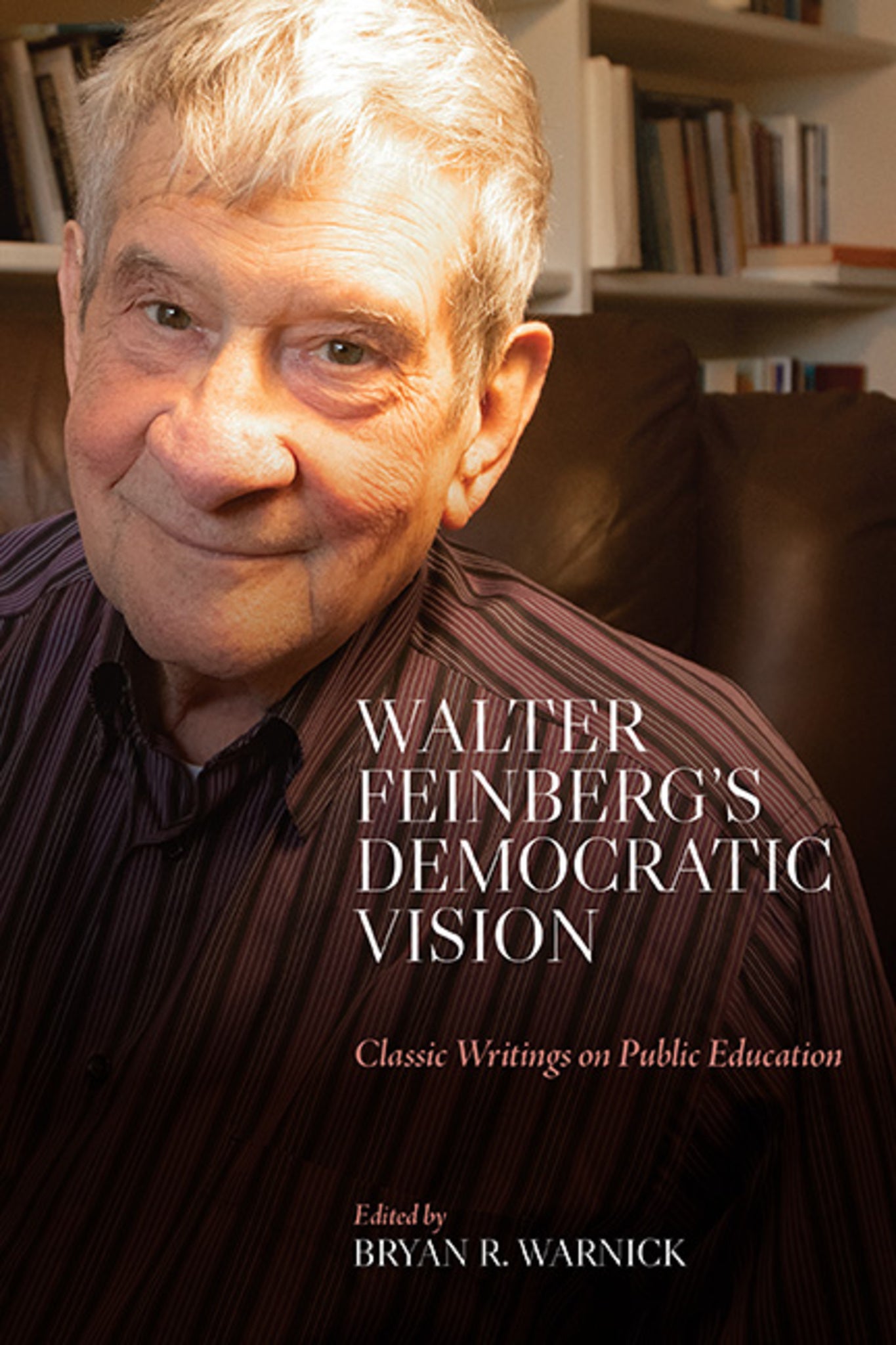We're sorry. An error has occurred
Please cancel or retry.
Walter Feinberg's Democratic Vision

Some error occured while loading the Quick View. Please close the Quick View and try reloading the page.
Couldn't load pickup availability
- Format:
-
01 May 2025

Collects Walter Feinberg's classic writings on the meaning of democracy for public education.
For over fifty years, Walter Feinberg has been a leader in interpreting democracy in and its meaning for public education. In this collection, Feinberg explores the question of how to study education, the necessary role of history and philosophy in this endeavor, and the need for educational theorists to engage with the lived realities of students, parents, and teachers through philosophical anthropology. He demonstrates a particular way of paying attention to public education that brings an interpretive sensitivity for others to the big philosophical questions of what public schooling should be in democratic societies. Feinberg explores many of the central questions that vex educational policy and practice: What should be the purpose of public schools? What should we think of school choice proposals? What are the relationships between religion and public schools? Should schools promote an American identity? How should we think about affirmative action? In this tour of educational ideas, democracy is the central concern, as it both presents questions that demand answers and becomes an approach to studying education with rigor and sensitivity.


"There is still much to be learned here about the role of 'the school' where the aspiration toward some sort of common democratic project endures. Feinberg's writings strengthen the sense that this essential tension remains." — David Blacker, author of Deeper Learning with Psychedelics: Philosophical Pathways through Altered States
"Feinberg's essays really help explain his approach to the philosophy of education and his particular issues of interest. He also demonstrates how contingency shapes our lives and experiences, including things like 'white privilege'—who benefits, who doesn't, and why." — David A. Granger, editor of John Dewey: A Reader for Teachers and Education Students
Acknowledgments
Part I: Introducing Feinberg
1. Introduction
Bryan R. Warnick
2. Autobiographical Essay: The Construction of a Social Philosopher of Education
Part II: Paying Attention in the Study of Education
3. Educational Studies and the Disciplines of Educational Understanding
4. The Discourse of Philosophy of Education
5. A Role for Philosophy of Education in Intercultural Research: A Reexamination of the Relativism-Absolutism Debate
6. Critical Pragmatism and the Reconnection of Science and Values in Educational Research
7. The Conflict Between Intelligence and Community in Dewey's Educational Philosophy
8. Critical Pragmatism and the Appropriation of Ethnography by Philosophy of Education: Critical Pragmatism and Local Understanding
9. Fixing the Schools: The Ideological Turn
Part III: Public School: A Democratic Vision
10. The Public Responsibility of Public Education
11. The Idea of a Public Education
12. Culture and the Common School
13. Uncommon Identities: Hard Cases
14. Affirmative Action and Beyond: A Case for a Backward-Looking Gender- and Race-Based Policy
15. Faith and the Pedagogical Limits of Critical Inquiry: Toward a Generous Reading of Religious Schools
16. On Public Support for Religious Schools
17. Reconciling Liberalism and Pluralism in Religious Education
18. Religious Education in Liberal Democratic Societies: The Question of Accountability and Autonomy
19. An Assessment of Arguments for Teaching Religion in Public Schools in the United States
20. Toward a New Progressive Educational Movement
Notes
Reference Bibliography
Index



